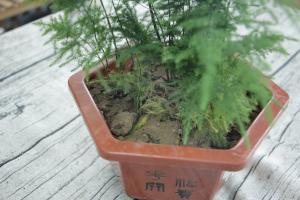Is planting trees illegal?
Planting trees is generally seen as a positive activity that promotes environmental conservation and sustainability. However, certain aspects of planting trees can be illegal in some situations. Here are some factors that may make planting trees illegal:
Planting trees without permission
In some areas, planting trees without permission from the local authorities can be illegal. For example, planting trees on public land or on someone else's property without their permission is considered a trespassing offense. In some cases, planting trees on private property without permission can also be illegal if it involves changing the natural topography or disrupting natural habitats for wildlife.
Planting invasive trees
While planting trees is generally positive, planting invasive tree species can be illegal because they can cause harm to the local ecosystem. Invasive trees can outcompete native trees for resources, disturb the balance of the local ecosystem, and reduce biodiversity. Therefore, before planting trees, it is important to research whether the species is native to the area and whether it poses any threat to the local ecology.
Planting trees in protected areas
Planting trees in protected areas can be illegal if it violates the rules and regulations set forth by the authorities. Protected areas may include national parks, wildlife sanctuaries, and other areas designated for conservation purposes. Planting trees in these areas without permission can cause harm to the local flora and fauna, disrupt natural habitats, and reduce the effectiveness of conservation efforts.
The consequences of illegal tree planting
If caught violating the rules regarding the planting of trees, the consequences can vary depending on the severity of the offense. In some cases, fines or legal penalties may be imposed. For example, in the UK, unauthorized planting of trees on public land can result in a fine of up to £20,000. In more severe cases, unauthorized tree planting can lead to imprisonment. Additionally, the offending trees may be removed, which can be a wasteful use of resources and harmful to the environment.
Conclusion
Planting trees can be a positive activity for the environment, but it is important to do so lawfully and responsibly. Before planting trees, it is essential to research the local regulations and ecology to avoid any illegal or harmful activities. Always seek permission before planting on someone else's property or public land, and be cautious of invasive tree species that can harm the local ecosystem.

 how many times do yo...
how many times do yo... how many planted tre...
how many planted tre... how many pine trees ...
how many pine trees ... how many pecan trees...
how many pecan trees... how many plants comp...
how many plants comp... how many plants can ...
how many plants can ... how many plants and ...
how many plants and ... how many pepper plan...
how many pepper plan...





























